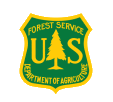-
Panama has lost 40% of its forest cover.
-
More than 50% of Panama's remaining tropical forests are found in indigenous territories and protected areas.
Native stewardship is the reason Panama's rainforests are still standing today.
Let's support what works.
Native Future is dedicated to helping Wounaan protect and restore the ecosystems they have conserved for generations.

Deforestation of Wounaan lands by non-Indigenous ranchers and loggers.
Partnership with US Forest Service International Programs Continues
Strengthening Wounaan Forest-Based Livelihoods.
JẼB JUA CHOOG K׳AP׳Λ WËNΛRRAAG



Wounaan Biocultural Forest Restoration
From 2017 to 2021, Native Future implemented the “Strengthening Wounaan Forest-based Livelihoods'' project– or JẼB JUA CHOOG K׳AP׳Λ WËNΛRRAAG in Wounaan Meu, the native language of the Wounaan people. This five-year project was funded by the US Forest Service (USFS) International Programs and carried out by Native Future in partnership with the Wounaan National Congress (CNPW) and the Foundation for the Development of the Wounaan People (FUNDEPW).
The purpose of this program was to strengthen the capacity of Wounaan communities to protect, restore, and manage the forest resources upon which their livelihoods depend. Communities participated in tree planting and forest restoration efforts, receiving training and technical assistance and planting approximately 21,000 trees that are important to their culture, livelihoods, and the ecology of their forests.
And the work continues! Native Future and USFS International Programs signed a new cooperative agreement in 2021 that will continue to support Native Stewardship objectives, addressing issues such as fire management and forest fire prevention in their territories.
The new project, Wounaan Biocultural Forest Restoration, continues providing families with expert technical assistance in the care and maintenance of their seedlings. It is also scaling up and diversifying community tree planting by developing a seed collection and exchange strategy that can support all Wounaan communities. Many Wounaan territories have been depleted of the diversity of trees, and therefore seeds, they want to plant in their forests and farms. The strategy will be informed by Wounaan traditional knowledge and practice.

Forests and deforestation

A Wounaan non-timber forest product

Wounaan baskets are a non-timber forest product
Too much of Wounaan territory has been deforested and degraded by agriculture and illegal logging. The natural resources Wounaan have relied on for generations are severely depleted: the palms for their baskets, the hardwoods they use for constructing their homes and the sacred rosewood (Dalbergia retusa) they carve for ceremonial and commercial purposes are all but extirpated in some communities.
JẼB JUA CHOOG K׳AP׳Λ WËNΛRRAAG, as it is known in Wounaan meu, is helping Wounaan communities reforest and restore their natural resources. A partnership with US Forest Service International Programs (USFS IPs), we are bringing technical assistance, training, equipment and materials to Wounaan reforestation objectives.
Yet, Wounaan ecological restoration needs are longer term than one project's resources. They require collaboration and a sustained approach. Contributions to Native Future's Wounaan Land Rights program help Wounaan develop more sustained financing of their stewardship activities and qualify for additional funds, such as that received from the UN Development Program GEF Small Grants Program for conservation and ecotourism in Puerto Lara.
With your help, we can continue to support Wounaan to protect and conserve the natural resources that sustain their culture and livelihoods.
Sustainability

For decades, Wounaan weavers and carvers have perfected their art into a livelihood and source of household income. Recently, global economic forces and changing local markets have significantly diminished Wounaan participation in a craft that was once practiced in up to 90% of their households. At the same time, deforestation and forest degradation are depleting the natural resources on which their craft depend. The project JẼB JUA CHOOG K׳AP׳Λ WËNΛRRAAG is assessing the problems and opportunities along all stages of the Wounaan arts value chain, from the management of their natural resources to harvesting, production, marketing and sale. It is identifying opportunities to increase value and returns to Wounaan women and communities and improve the management of these non-timber forest products for future generations.










